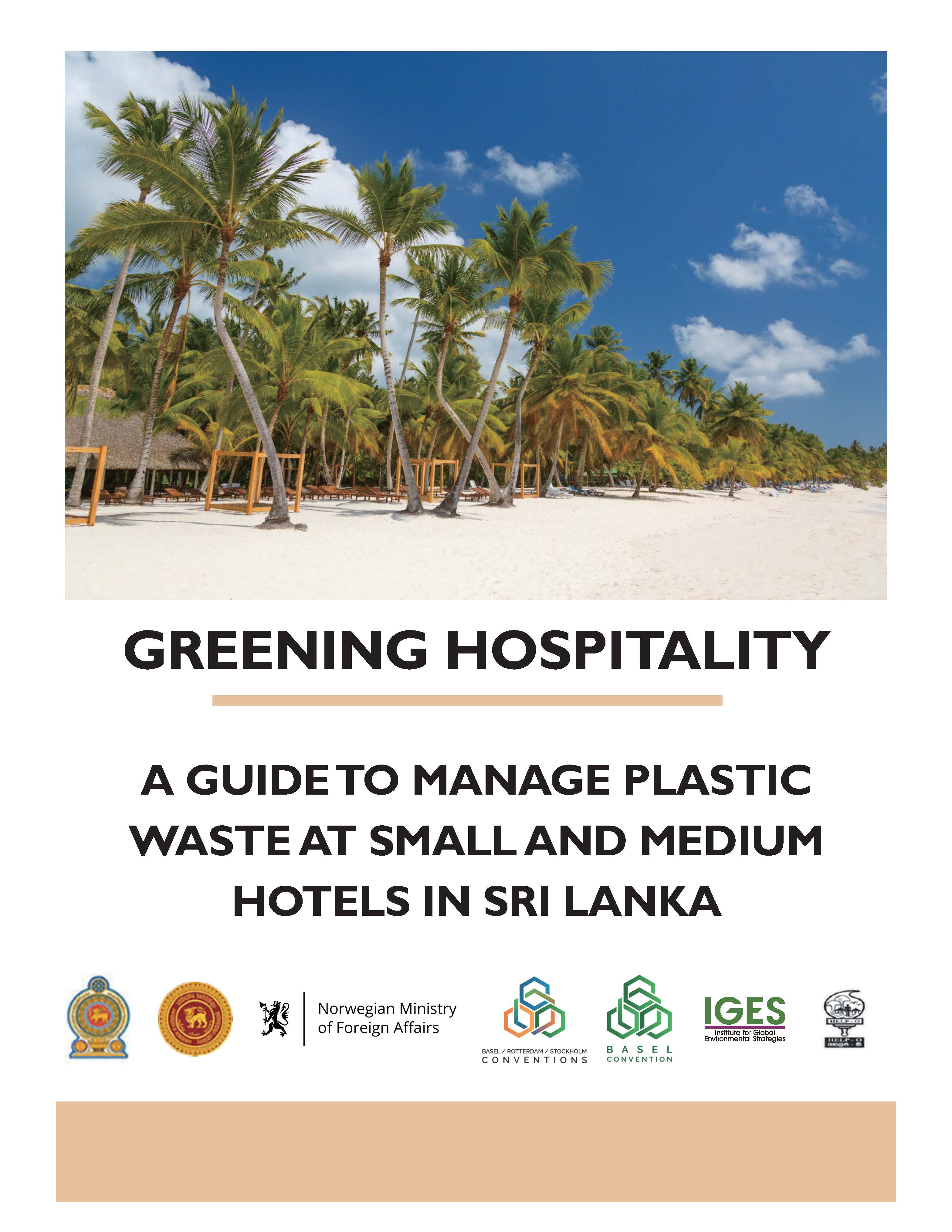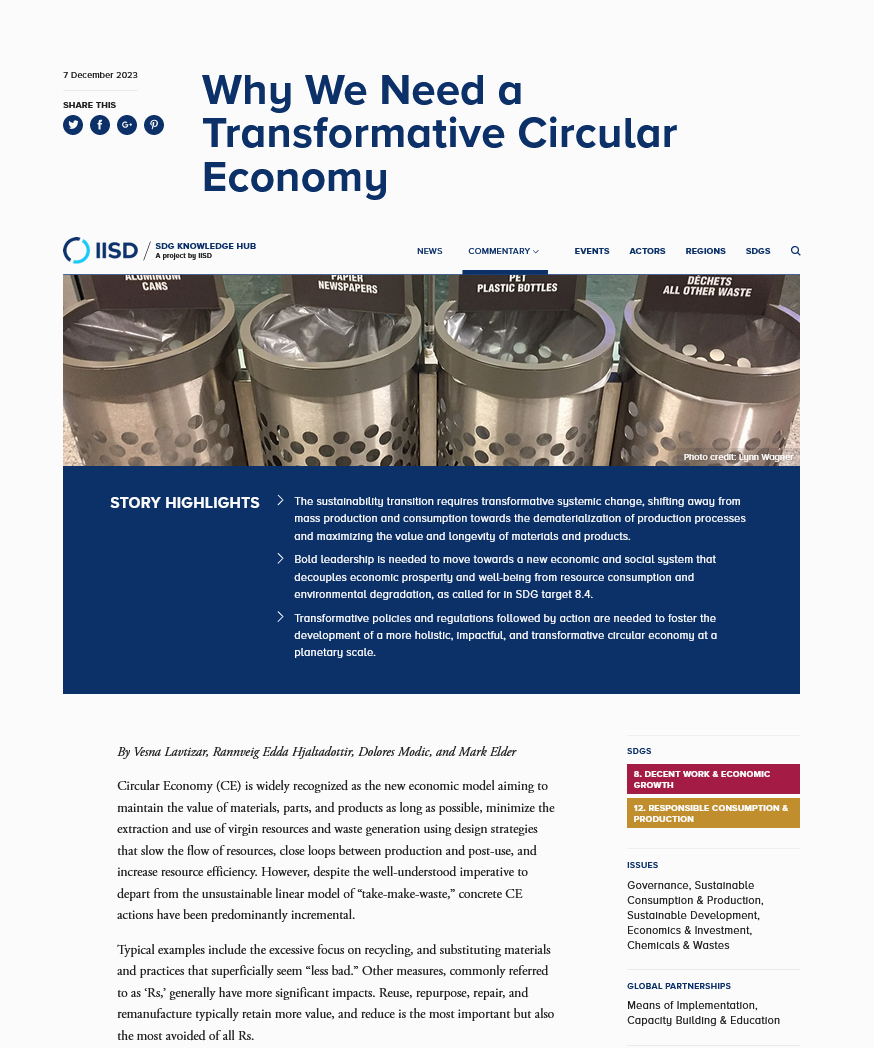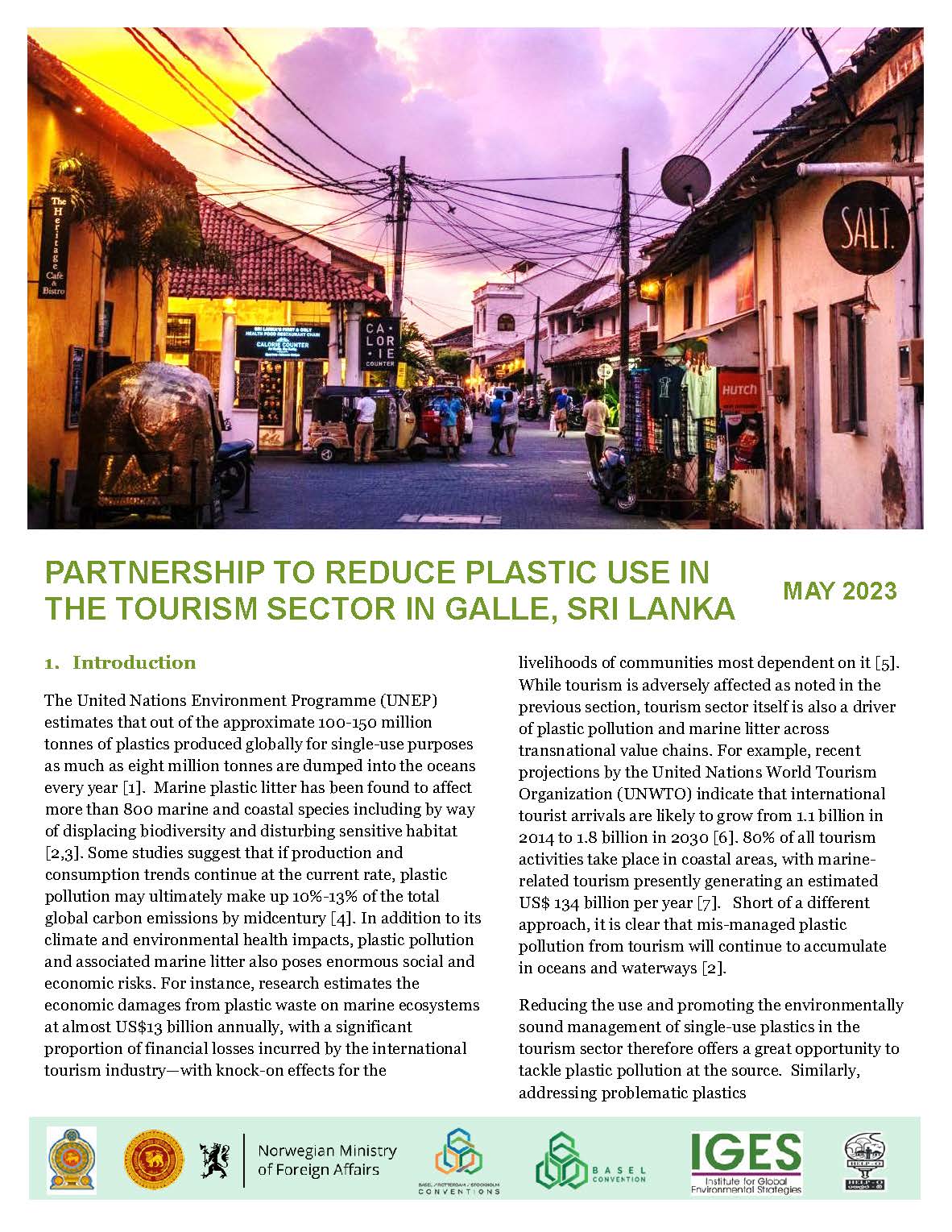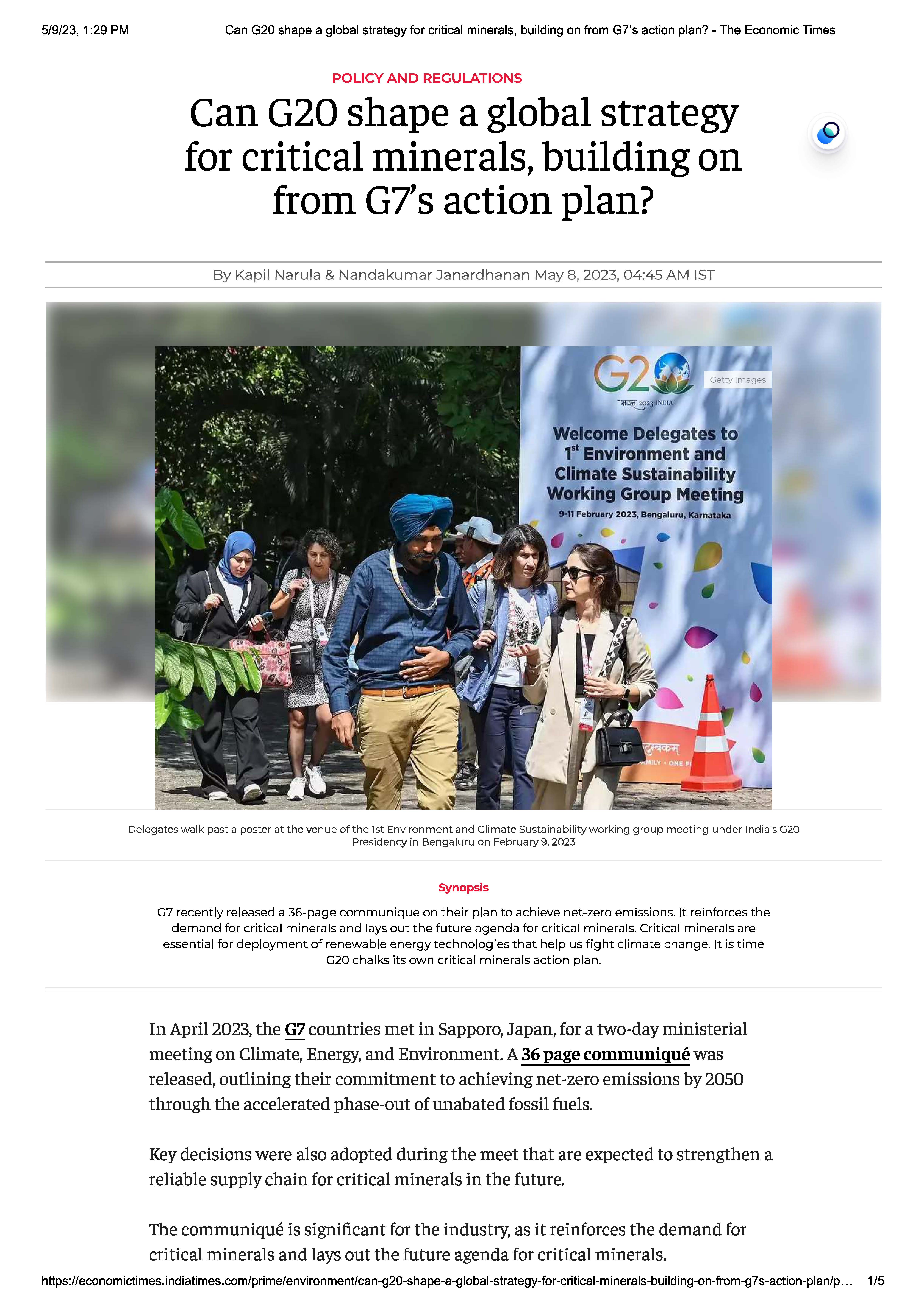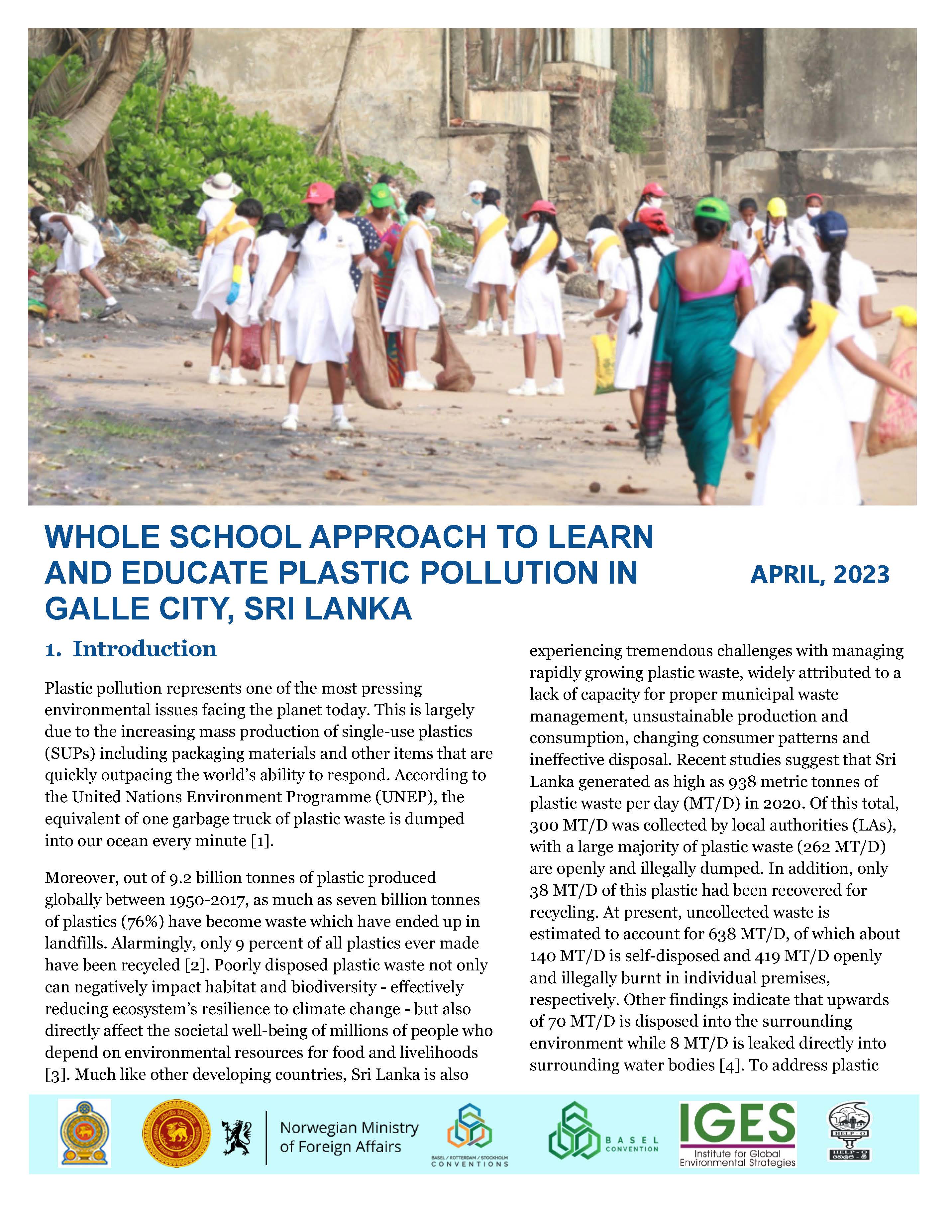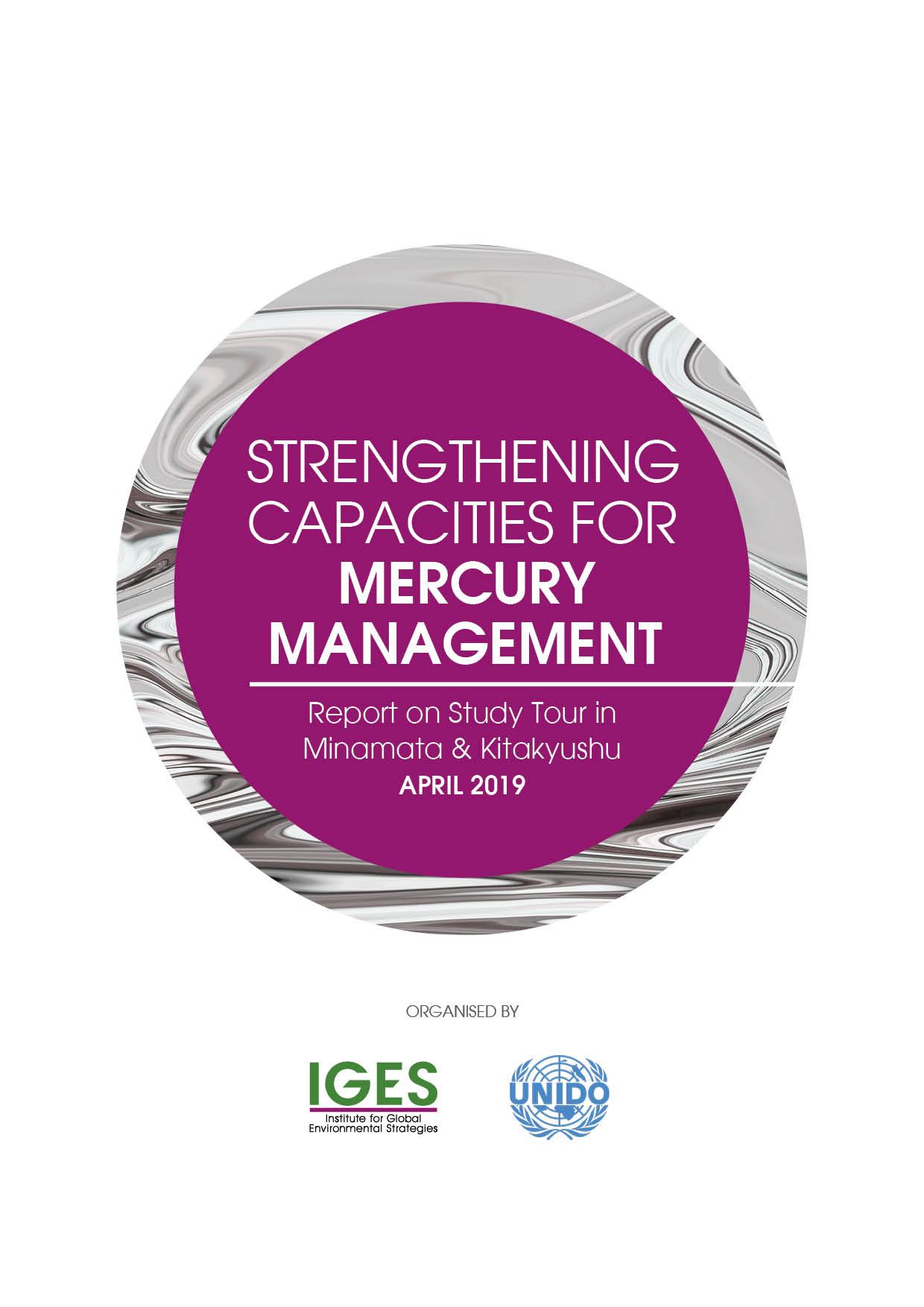The global hospitality industry is at a pivotal juncture, confronting a pervasive challenge — the menace of plastic pollution and marine litter. The Global Tourism Plastics Initiative (GTPI) notes that approximately 80 percent of all tourism activities occur in coastal areas, positioning the hotel industry as a significant contributor to the...
Results 1 - 10 of 16 (Sorted by date)
IISD SDG Knowledge Hub
The sustainability transition requires transformative systemic change, shifting away from mass production and consumption towards the dematerialization of production processes and maximizing the value and longevity of materials and products. Bold leadership is needed to move towards a new economic and social system that decouples economic...
Keywords:
Reducing the use and promoting the environmentally sound management of single-use plastics in the tourism sector offers a great opportunity to tackle plastic pollution at the source. Similarly, addressing problematic plastics throughout tourism value chains can also drive a shift towards innovative and circular business models. In this context...
G7 recently released a 36-page communique on their plan to achieve net-zero emissions. It reinforces the demand for critical minerals and lays out the future agenda for critical minerals. Critical minerals are essential for deployment of renewable energy technologies that help us fight climate change. It is time G20 chalks its own critical minerals...
Keywords:
Plastic pollution represents one of the most pressing environmental issues facing the planet today. This is largely due to the increasing mass production of single-use plastics (SUPs) including packaging materials and other items that are quickly outpacing the world’s ability to respond. Social, cultural and economic shift in addition to the...
Journal of Life Cycle Assessment, Japan
本論文の目的は、日本国内で豪雨災害が激甚化・頻発化する中、世界で気候変動がどのように捉えられているのかを紹介し、いくつか具体例を示すことで、脱炭素化に向けた建築・都市の役割を論じる。
Keywords:
The Minamata Convention on Mercury was adopted at the conference held in Kumamoto City and Minamata City in October 2013. The convention aims to protect human health and the environment from anthropogenic emissions/releases of mercury and mercury compounds and stipulates appropriate management and reduction of the emissions through the entire...
グリーン・パワー
パーム油は、西アフリカ原産のアブラヤシの実を搾った油脂から作られる。日本で消費される植物油のうち菜種油についで2番目に多く消費され、国民一人当たり年に4~5リットル消費している(WWF 2015)。食用油、マーガリン・ショートニング、スナック菓子、化粧品、洗剤など幅広い用途に使用されている。また、ここ数年ではアブラヤシの種子からパーム核油を取り出した後の残ざん渣さであるパーム核殻が輸入され、国内のバイオマス発電で使用されるようになっている(滝沢 2015等)。よって、パーム油はその生産過程で生じる副産物も含めて、私たちにとって非常に身近な存在といえる。しかし、日本ではパーム油を使用する商品の原材料名には「植物油脂」と記載されるので、普段パーム油を消費しているという実感をもつのが難しく...
UNEA4では、会合全体のテーマである「環境的課題と持続可能な消費と生産のための革新的な解決策(Innovative Solutions for Environmental Challenges and Sustainable Consumption and Production)」に見られるように、SCPが環境・持続可能性の課題を解決する上で鍵となる横断的なアジェンダとして注目を集めた。本ブリーフィングノートでは、UNEA4におけるSCPに関する議論を採択された決議を踏まえて概観し、循環経済と資源効率、持続可能なインフラ・移動などの横断的な領域、持続可能なライフスタイルへの転換の3つの文脈から整理する。さらに、持続可能なライフスタイルに関する分析の一例として...
日本LCA学会誌
人間の福利を満たすレベルに充分な程度の経済発展や消費のあり方を希求する考え方。 持続可能性(Sustainability)に関連して充足性が議論される場合には、2つの大きな潮流がある。第1は、経済活動を際限なく拡大することへの反省を込めて、充足性が議論される場合である。ブータンの「Gross National Happiness」指標や、タイの「Sufficiency Economy(セータキット・ポーピアン)」の背景となっている。第2は、経済開発と資源利用ないしは環境負荷との「切り離し」に関する場合である。「切り離し」を実現する方法としては、これまで技術改良による効率性の改善が主流であったが、効率性の改善が消費や環境負荷の抑制につながらずに資源の総消費や環境負荷総量を高めてしまう...

